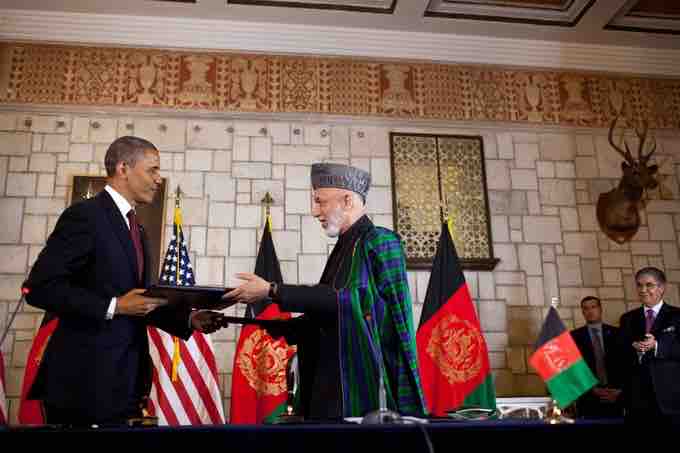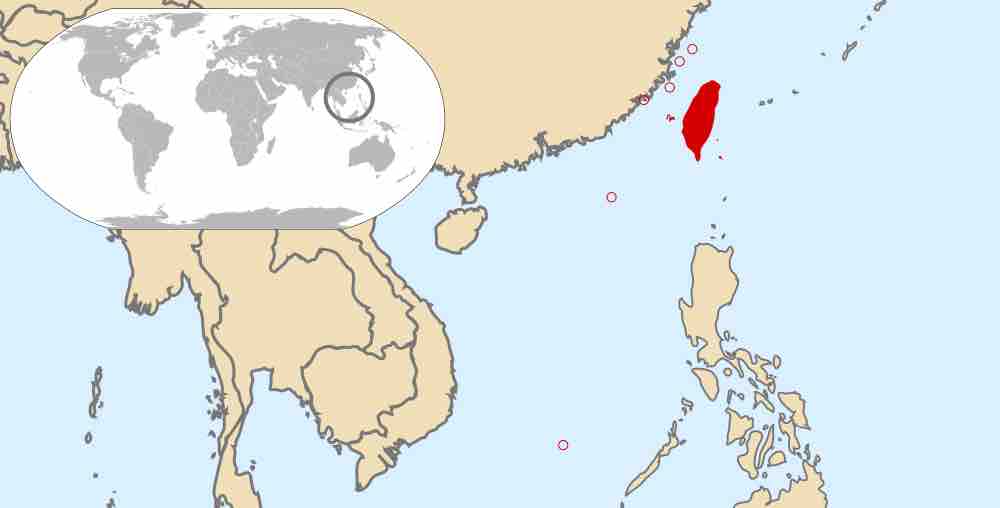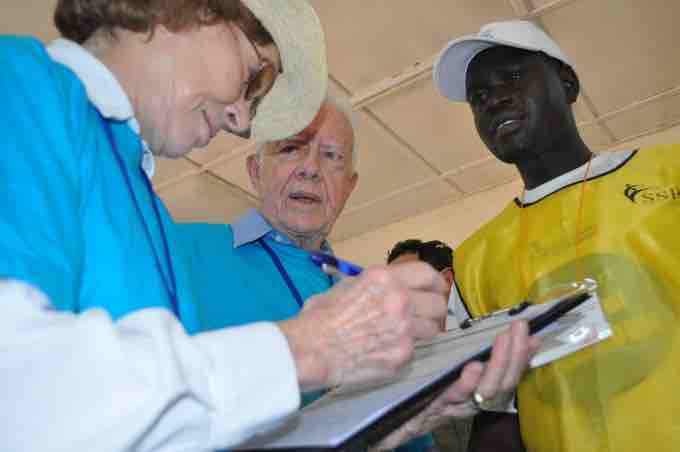What is Diplomacy?
Diplomacy is the art and practice of conducting negotiations between representatives of groups or states. It usually refers to the conduct of international relations through the intercession of professional diplomats with regard to issues of peace-making, trade, war, economics, culture, environment, and human rights. International treaties are usually negotiated by diplomats prior to endorsement by national politicians .

Signing Treaties
Obama and Afghanistan President Hamid Karzai sign a strategic partnership agreement. One of the main objectives of diplomacy and diplomatic negotiations is signing and negotiating treaties with other countries. If negotiation by national diplomats is successful, the national leaders (as depicted here) sign the treaties.
To some extent, all other tools of international relations can be considered the failure of diplomacy. Keeping in mind, the use of other tools are part of the communication and negotiation inherent within diplomacy. Sanctions, force, and adjusting trade regulations, while not typically considered part of diplomacy, are actually valuable tools in the interest of leverage and placement in negotiations.
Diplomatic Recognition
Diplomatic recognition is an important element of diplomacy because recognition often determines whether a nation is an independent state. Receiving recognition is usually difficult, even for countries which are fully sovereign.
Today there are a number of independent entities without widespread diplomatic recognition, most notably the Republic of China (ROC)/Taiwan on Taiwan Island. Since the 1970's, most nations have stopped officially recognizing the ROC's existence on Taiwan, at the insistence of the People's Republic of China (PRC). Currently, the United States maintains informal relations through de facto embassies, with names such as the American Institute in Taiwan. Similarly, Taiwan's de facto embassies abroad are known by names like the Taipei Economic and Cultural Representative Office. This was not always the case, with the U.S. maintaining official diplomatic ties with the ROC. The U.S. recognized it as the sole and legitimate government of "all of China" until 1979, when these relations were broken off as a condition for establishing official relations with PR China .

Taiwan and U.S. Diplomatic Recognition
In recent years, Taiwan, an island located off the east coast of China, has not been diplomatically recognized by the United States. The U.S. has adopted this policy in order to maintain more advantageous diplomatic relations with China.
The Palestinian National Authority has its own diplomatic service. However, Palestinian representatives in most Western countries are not accorded diplomatic immunity. Their missions are referred to as Delegations General.
Other unrecognized regions that claim independence include Abkhazia, Transnistria, Somaliland, South Ossetia, Nagorno Karabakh, and the Turkish Republic of Northern Cyprus. Lacking the economic and political importance of Taiwan, these nations tend to be much more diplomatically isolated.
Informal Diplomacy
Informal diplomacy is also a key component of diplomacy. Sometimes called "track II diplomacy," the U.S. has used informal diplomacy for decades to communicate between powers. Most diplomats work to recruit figures in other nations who might be able to give informal access to a country's leadership. In some situations, like between the United States and China, a large amount of diplomacy is done through semi-formal channels using interlocutors such as academic members of think tanks. This occurs in situations where governments wish to express intentions or to suggest methods of resolving a diplomatic situation, but do not wish to express a formal position.
On some occasions a former holder of an official position might continue to carry out an informal diplomatic activity after retirement. At times, governments welcome such activity, for example as a means of establishing an initial contact with a hostile state of group without being formally committed. However, in other cases such informal diplomats seek to promote a political agenda that is different from the agenda of the government currently in power. Such informal diplomacy is practiced by former U.S. Presidents Jimmy Carter and (to a lesser extent) Bill Clinton .

Jimmy Carter and Informal Diplomacy
Former U.S. President Jimmy Carter visits a referendum polling center in Sudan 2011. Former President Carter is leading the Carter Center's international observation of the referendum. Even after leaving office, political leaders can remain active in informal diplomacy.
Diplomacy as Soft Power
The concept of power in international relations can be described as the degree of resources, capabilities, and influence in international affairs. It is often divided up into the concepts of hard power and soft power. Hard power relates primarily to coercive power, such as the use of force. Soft power commonly covers economics, diplomacy, and cultural influence. There is no clear dividing line between the two forms of power. However, diplomacy is usually regarded as being important in the creation of "soft" power, while military power is important for "hard" power.